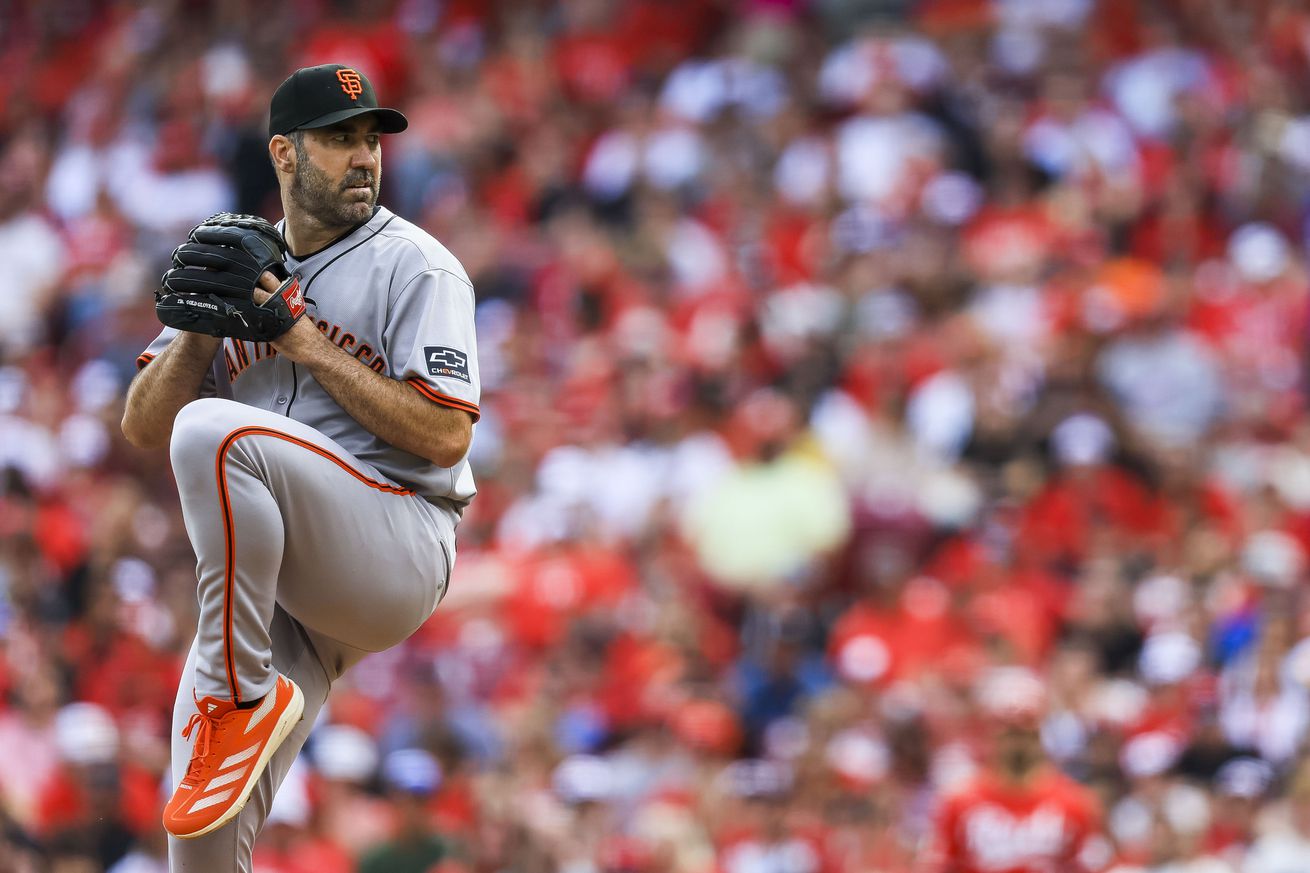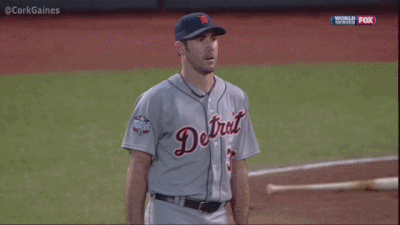
Justin Verlander pitched well in his Giants debut… just not well enough to prevent the first loss of 2025
The 9th inning magic that secured victory in game 1 of the 2025 season reflected the flair, pomp and hope of Opening Day. Two days later, Opening-Day-plus-one and the San Francisco Giants are already in the grind.
A warm midwestern day in Great American “Smallpark” seemed to set-up ideal conditions to hit, but offense ended up being at a premium for both teams, with Christian Encarnacion-Strand’s opposite field solo shot in the 6th proving to be the decider in the Giants’ 3-2 loss.
Pleasant Hill’s own Encarnacion-Strand tucked a 2-2 sinker from reliever Spencer Bivens just inside the right-field foul pole for Cincinnati’s third, and unexpectedly decisive run of the game.
March 29 – SF at CIN
Heliot Ramos – LF
Willy Adames – SS
Jung Hoo Lee – CF
Matt Chapman – 3B
Wilmer Flores – 1B
Luis Matos – RF
Patrick Bailey – C
Casey Schmitt – DH
Tyler Fitzgerald – 2BRHP Justin Verlander
— Susan Slusser (@susanslusser.bsky.social) 2025-03-29T16:02:23.461Z
Wilmer Flores, last game’s hero, picked up right where he left off with another homer in the 2nd off Cincinnati starter Nick Lodolo — the first time in his career that the veteran homered in the first two games of the season. San Francisco would pick up another run the next inning on a Jung Hoo Lee hole-punch that cashed in Heliot Ramos’s lead-off double.
Opportunities against Lodolo dried up after the 3rd. Through the middle innings, the Reds’ starter retired nine in a row with consecutive eight ground-outs (6 IP, 5 H, 2 ER, 0 BB, 1 K). San Francisco’s last plate appearance with a runner in scoring position came with two outs all the way back in the 3rd.
Singles from Matt Chapman, Luis Matos and Tyler Fitzgerald in the 6th, 7th and 8th innings were all immediately erased by double-play balls. Obviously it’s good that Giants hitters found a way to not strike out 17 times in a game, but the toothless, rally-killing balls in play kinda made me miss the whiff. At least you can’t strike out twice on one pitch.
On the other side of the baseball, Justin Verlander made his 527th game appearance of his career, and first as a Giant. He threw 80 pitches over 5 innings, allowing 2 runs on 6 hits, 1 walk and 5 strikeouts. There were no laborious innings, pitch count trouble or long at-bats. He twice got Luke Fraley to close out an inning and strand runners, first with back-to-back elevated four seamers he swung through in the 2nd, and then with a breaking ball he rolled into the mitt of Matt Chapman in the 4th.
Flipping the script from Thursday, the Reds found their way back out of an early hole, led by the bat of second baseman Matt McClain.
McClain, who homered in the 9th inning on Opening Day, took a lazy Verlander slider deep in the 3rd, and his 2-out double in the 5th put him in position to cruise home on Elly De La Cruz’s RBI single in the 5th.
A couple of pitches he probably would have called mulligans on — but that’s the rub. A “decent” outing with its flaws overblown due to the nature of a close game and low run support.
At this point in Verlander’s career, he’s a master at moving on. He understands that nothing good comes from second-guessing himself, or keeping himself up at night debating whether he should’ve gone back to the fastball instead of the 2-2 curve that De La Cruz yanked into right.
Here’s what he said about the game-tying hit in a postgame interview”
“That’s baseball. You can beat yourself up as a pitcher on many things, but if you make a pitch and the guy doesn’t hit it hard and he gets it in the right spot, you’ve got to tip your cap and move on. He laid off a really good slider the pitch before that. That’s what the best players in the game do.”

After two decades in the business, there’s really not too much to fret over for Verlander. He’s seen it all. Things like a tight zone, missed location, hung breaking ball, or a good pitch nullified by a better take, or a great pitch somehow swatted over the fence — all things that would make a younger, hotter head throttle a new ball like it was an umpire’s neck — won’t derail him. He’s not a robot by any means — rather the opposite, I think. He feels the game intuitively, and pitches based on the ebbs and flows of counts and innings. Only so much can be planned before he’s out on the mound, and there’s only so much he can control after he throws the baseball.
A core truth of the game.
Another: sometimes good pitches get crushed and bad pitches get the job done.
One more: sometimes a team strikes out 17 times and wins a ball game, and sometimes they strike out once and lose.